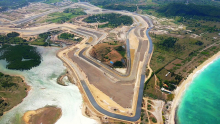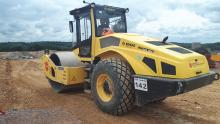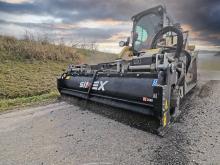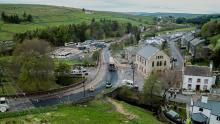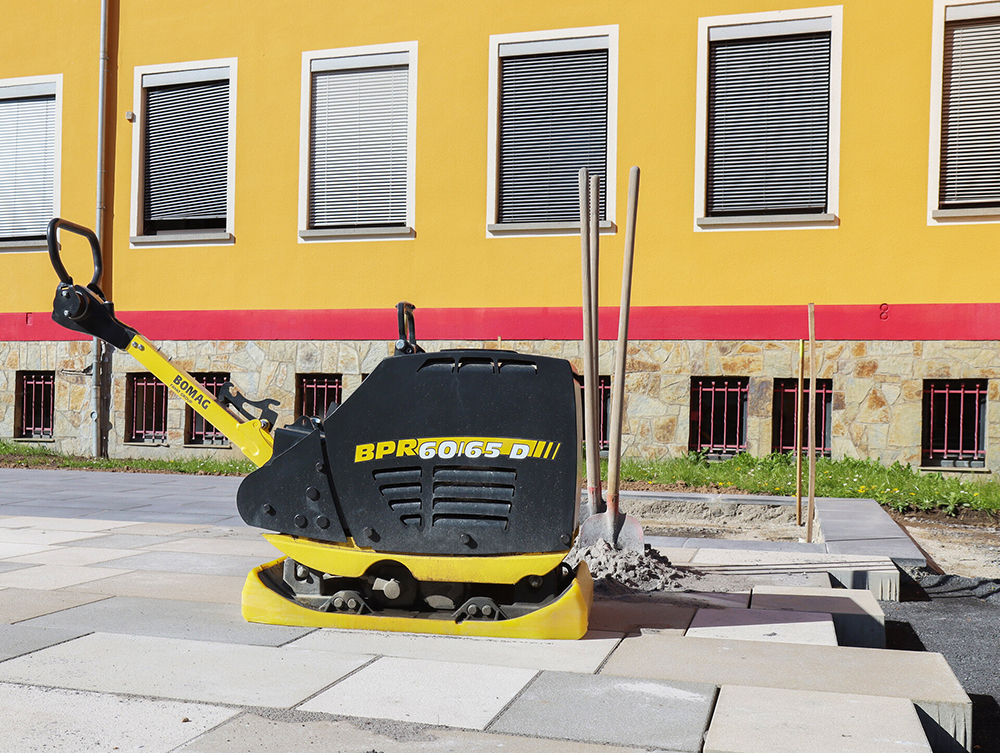
With a STONEGUARD vibratory plate, optimum surface coverage, handling and quality results can be achieved in paving work—with a drastically reduced breakage rate. The reversible STONEGUARD plates are specially designed for vibrating concrete blocks, smooth, natural stones, large areas, chamferless stones and sensitive surfaces.
The team at HS SCHULZ is convinced by the unique and patented design principle of STONEGUARD vibratory plates and is glad to have such a paving plate in its machine fleet.
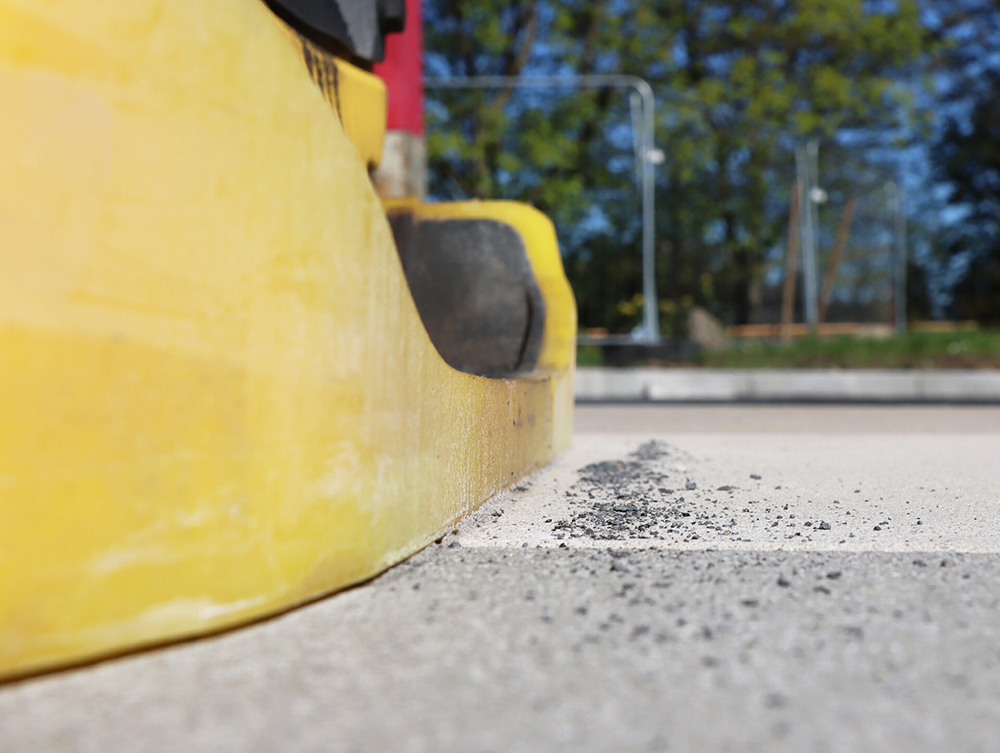
The long-established construction company from Koblenz was commissioned to redesign a school playground in Lahnstein on the Rhine. After a two-year wait due to Corona, work on the Johannes Grammar School site finally began in the first half of 2023.
The total area of this construction project corresponds almost exactly to the size of half a football field. Eight different concrete blocks in two sizes and four colours had to be laid here and, of course, subsequently vibrated. During vibration, the BOMAG BPR 60/65 D STONEGUARD paving plate used by HS SCHULZ was able to demonstrate its strengths to the full.
“With a conventional plate, you couldn't vibrate such a pavement at all. Compared to a standard machine, the contact area is much larger. With the STONEGUARD, I don't shift any joints." Guido Günther, foreman at HS SCHULZ, is convinced.
After the new subsoil had been prepared (the old pavement had warped in many places), it was now time for the paving work. Large-format, 12 cm thick concrete blocks with a modern design were laid. They were so heavy that the slabs could only be laid with the help of a vacuum lifter. When vibrating the area, Guido Günther relied on the design advantages of BOMAG's BPR 60/65 D STONEGUARD.
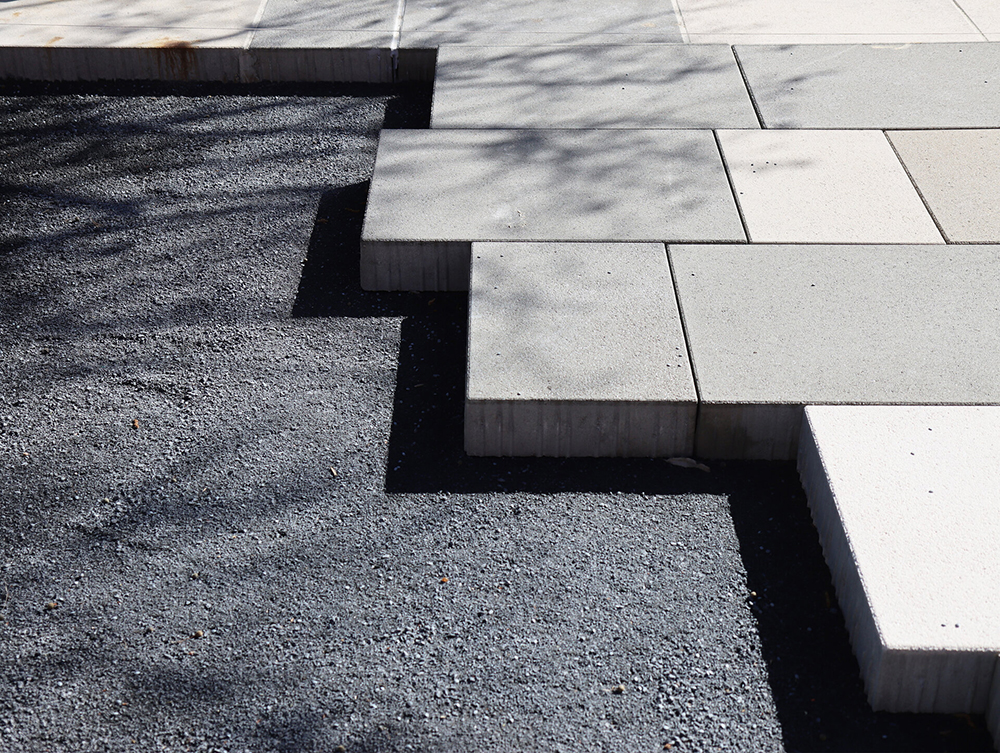
His employer, HS SCHULZ, specialises in road construction, earthworks, infrastructure and landscaping. The company's team and management form a homogeneous, well-organised unit. The hierarchies are flat, and of course, the crew on the construction site always has a say in selecting the best machine for the job.
“The vibratory plate is fast, quiet and runs smoothly. I really wanted to work with it here. The machine is ideal for such an area,” says Nico Klammer, paver, Horst Schulz Bauunternehmung GmbH. The trend has been observed for some time now: for design and functional reasons, large-format paving stones with sharp edges are increasingly being used year after year, as seen here in Lahnstein.
Professional laying and the correct use of a vibratory plate suitable for this task are then required because working with chamferless stones and large formats increases the risk of damage and edge spalling. Many paving stone and concrete block manufacturers recommend using special vibratory plates with a gliding mechanism, that are gentle on the surface and stones for vibrating these formats.
The paving must be dry to avoid vibration marks. Excess jointing material must also be thoroughly removed before vibrating. Ideally, the stones should be vibrated in the longitudinal or laying direction. In Lahnstein, the paving was laid with a "regular irregularity". But the randomly structured "wild pattern" should also not be underestimated. The laying pattern follows fixed rules: Eight different stones in two sizes and four different colours must ultimately create a harmonious surface pattern across the entire school playground. In accordance with the German TL Pflaster-StB paving guidelines, stone chippings of 0-5 mm are used as bedding material to compensate for tolerances and distribute loads to the substrate without causing damage.
Significantly less paving stone breakage
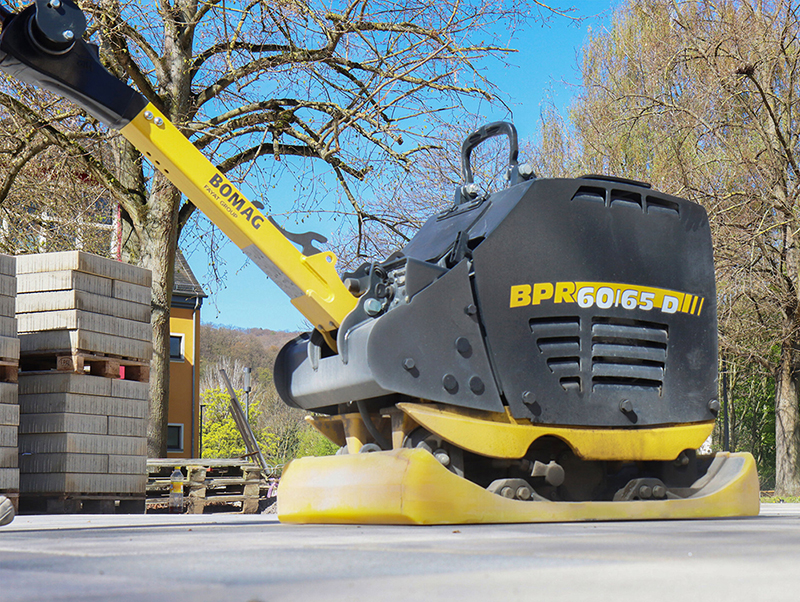
Since their introduction in 2013, the STONEGUARD vibratory plates, specially designed for paving work, have proven successful in vibrating bar-shaped formats, large slabs and stones with sharp edges. They are often the first and best choice for this task on construction sites.
Because with such demanding paving stones, the breakage rate can become a significant cost factor when conventional compaction equipment is used. Although the use of vibratory plates with an attached plastic mat provides a workaround, the specially equipped BPR 60/65 D saves even more time and material. Thanks to STONEGUARD, significantly fewer paving stones need to be replaced than usual. The breakage rate is considerably lower.
The key and instantly recognisable feature of STONEGUARD paving plates is the yellow plastic element attached securely and slip-free beneath the base plate. The underside of this sliding layer is flat and smooth, and its contact surface is considerably larger than that of standard machines. Compared to conventional vibratory plates designed for earthworks with a plastic mat attached underneath, the unique and patented BOMAG design principle offers considerable advantages:
- No shifting of the joints
- Significantly less edge spalling and paving stone breakage
- Up to 30% higher working speed
- Excess jointing material is blown away during vibration
- These features enable vibration down to the last stone.
BOMAG's designers specially adapted the running characteristics and working speed of the STONEGUARD paving plates to the application of "vibrating paving stones". A STONEGUARD stands out here with significantly higher area coverage and ensures a perfect surface and joint pattern. The solid bond between plastic and steel prevents energy loss and simultaneously reduces wear due to friction.
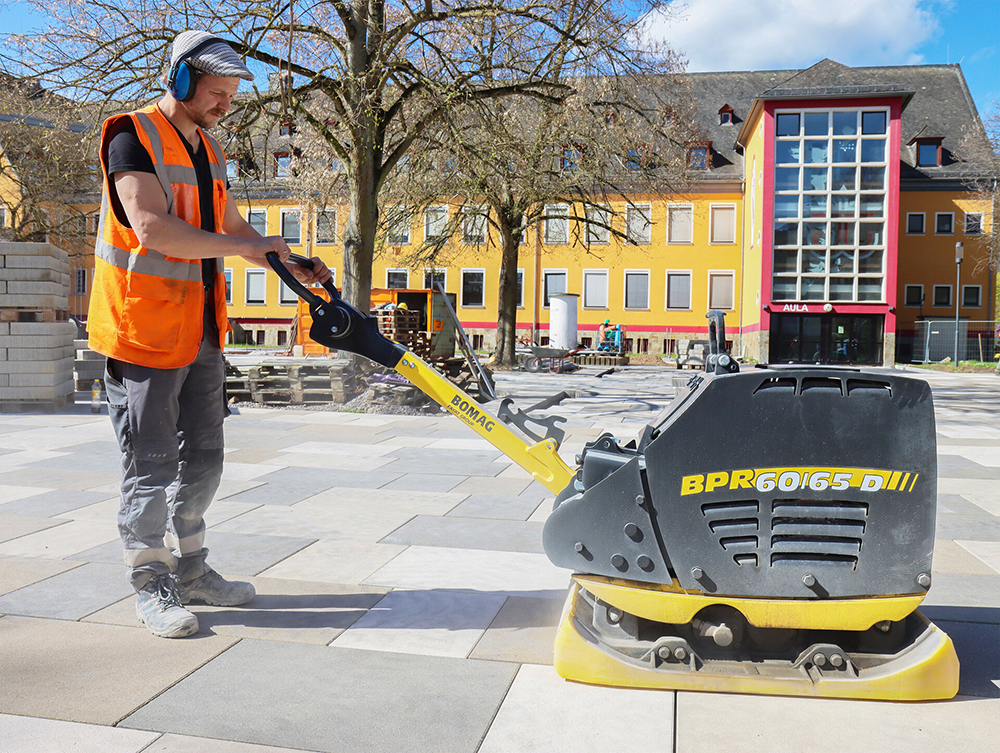
BOMAG STONEGUARD paving plates run extremely smoothly. The plastic element lies fully on the surface. Displacements in the stone pattern can be almost completely avoided due to the clever design and, especially, the large contact surface. This is ideal for work like on the school playground in Lahnstein with its large-format paving. After the first pass already, the vibrated surface was almost flat.
... and shortly after the Easter holidays, half the playground area had already been completed. The result is impressive and gives a foretaste of what it will look like at the school festival in summer, if the paving and subsequent vibration proceed at the same pace and so smoothly that almost no reworking is needed.
No more laborious and costly repair work
The plastic element of the BOMAG paving plate is not only fully in contact with the surface but is also characterised by the completely surrounding overhang. HS SCHULZ's workers can operate the machine right up to kerbs and façades, or pillars and posts in the pavement. They can easily work up to the edges without damaging anything. In this discipline, too, the BPR 60/65 D STONEGUARD scored well because the playground of the Johannes Grammar School is regularly interspersed with green spaces, raised beds, play facilities and recreational areas.
The STONEGUARD does have one small drawback, though: as compacting chip and seal, asphalt or crushed rock with this plate is strictly off-limits, Guido Günther is only allowed to use it to vibrate paving.
BOMAG's STONEGUARD series includes reversible vibratory plates in weight classes ranging from 150 to 500 kg with diesel and petrol engines: The models BPR 25/50 D, BPR 35/60, BPR 35/60 D, BPR 50/55 D, BPR 55/65 D, BPR 60/65 and BPR 60/65 D are specially designed for vibrating concrete blocks, smooth, natural stones, large areas, chamferless stones and sensitive surfaces.
Compared to a conventional vibratory plate with a polyurethane mat, the STONEGUARD also enables faster work with less breakage. A BOMAG STONEGUARD vibratory plate therefore pays for itself through cost savings at the latest.
Content produced in association with Bomag

